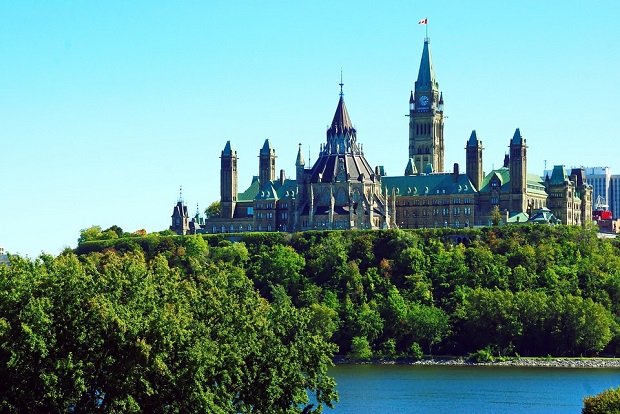The Liberal government’s first federal budget laid out $11.9 billion over five years for new infrastructure spending and the move was met with approval from some mayors of the country’s largest cities.
Ottawa plans to spend $29.4 billion this year, $29 billion in 2017, $22.8 billion the following year and $17.7 billion in 2019-2020. The nearly $30 billion deficit for this coming fiscal year is much larger than the $5.6 billion deficit for the current year which straddles the previous Conservative and current Liberal governments.
Finance Minister Bill Morneau yesterday said that as much as $5 billion will be spent during that period on much-needed upgrades to municipal water and wastewater infrastructure and green infrastructure projects.
An additional $3.4 billion will be poured into public transit. As much as $2.41 billion of that will to Ontario and Quebec which account for more than 71 per cent of the country’s public transit ridership. Social infrastructure, which includes child care, housing and recreational facilities will get $3.4 billion.
“This is truly a cities’ budget and I’m encouraged by the investments being made in Toronto from transit to social housing, green infrastructure to heritage and culture,” said Toronto Mayor John Tory in an interview with reporters at city hall yesterday afternoon.
“As a mayor of Montreal, and the perspective of a partnership with the government of Quebec who is respecting his metropolis, I think they’re bang on this year,” Montreal Mayor Denis Coderre said of the Liberal’s budget. “I had a feeling like it was like a new deal. This is exactly what we were looking for.”
RELATED CONTENT
Here’s what people will be looking for in the federal budget
Alberta Premier Rachel Notley said that items in the budget concerning employment insurance reports are a “good start” for unemployed Albertans but added she is “cautiously optimistic” on the infrastructure announcement.
Here are some of the winners and losers in the 2016 federal budget:
Winners
First Nations – $4.22 billion over five years, including $2.6 billion for on-reserve education, $1.8 billion for water and wastewater infrastructure, $6348 million for child and family services, $969 million for education and $554.3 million for housing needs.
Student – $1.53 billion over five years. This means the Canada student grants to grow from $2,000 to $3,000 for low income students, from $800 to $1,200 for middle-income students and from $1,200 to $1,800 for part-time students.
Families – $10 billion for Canada Child Benefit. Depending on the family situation, families could get as much as $6,400 on tax-free cheques.
Veterans – A total of $5.6 billion more in direct payments to veterans and their families over five years. Disability award for veterans will be increased to $360,000, retroactive to 2006. Earnings loss benefit to injured vets will rise to 90 per cent of their pre-release salary. Nine veterans’ service office which was closed by the previous government will be reopened and a new one will be added to the roster.
EI claimants – The government will introduce new rules that will make it easier for new job seeker as well as those re-entering the job market to qualify for benefits. The waiting period for employment insurance cheques will go down to one week from two. Benefits periods will be extended by five weeks in areas with the largest unemployment increases.
Losers
The military – Ottawa is deferring spending on big large procurement items worth billions of dollar.
Small business – During the campaign the Liberals promised they will cut the small business tax rate from 11 per cent to nine per cent on the first $500,000 of qualifying income. Yesterday, small business owners found this would not be happening. The rate will be cut to only 10.5 per cent. Future cuts will be deferred.
Tax break – Some of the Conservative’s targeted tax breaks were undone, including tax credits for tuition, textbooks, children’s fitness and arts expenses, as well as income-splitting for families with children.

